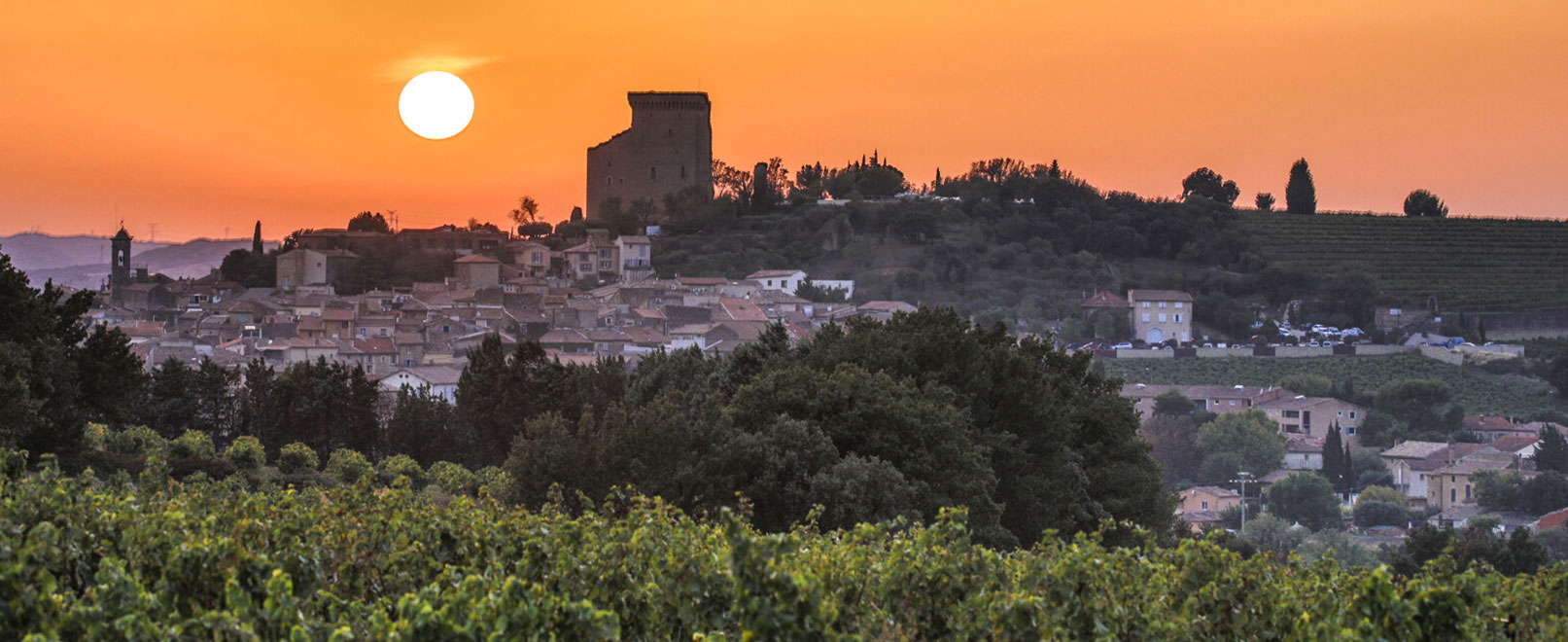
Châteauneuf-du-Pape & Heritage
Immersion in wine-making country
This walk is fairly easy with no major elevation, following little tarmacked roads and flat paths winding their way through the vines from the village of Châteauneuf-du-Pape as far as the left bank of the Rhône. The figure-8 itinerary means you can choose to only do one loop if you prefer.
This hike is only 30 minutes from Avignon… It’s a nice walk-through fine wine country that encompasses nature, history and heritage.
Duration:
3 hours
Type:
Hiking
Parking :
free
A summer residence for the Popes
The Castle can be seen standing proud at the top of the village of Châteauneuf-du-Pape. All visitors can easily find its symbolic ruins.
You can’t get lost going from the fountain in the centre to the esplanade, you just have to climb! However, we couldn’t resist and are getting there by weaving our way in and out of the narrow streets…
The former popes’ summer residence was built by Pope John XXII in the 14th century and benefitted from an exceptional location. Looking out from the orientation table you can see all of the Rhône valley, it’s enough to make you giddy! Watch it swaying side to side when the Mistral is blowing…
Avignon and its palace are just a stone’s throw from there. It feels as though we’re looking at a whole part of history at the foot of this castle open to the elements, and the grandeur of the past that has given Châteauneuf-du-Pape and its wines its renown.

Did you know?
If “Châteauneuf Calcernier” owes its reputation to the influence of the papacy during the 14th and 15th centuries, it wasn’t until 1893 that this former fiefdom of the Avignon diocese was renamed Châteauneuf-du-Pape.
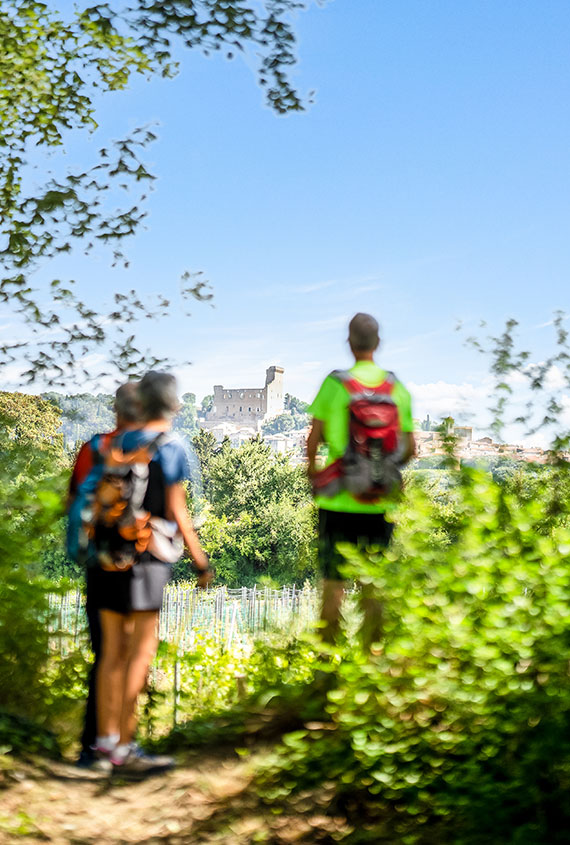
The view from the Popes’ castle
A breath-taking view of the whole valley as far as Avignon can be seen from the courtyard of the castle in Châteauneuf-du-Pape.
Through the wine-growing region
We leave the Castle walking down towards the stone arch. 13 panels can be read along the path which describe the 13 grape varieties in the appellation, now we’re talking! At the start a rural road, with oratories here and there, runs along vines and gardens. Then a stony path leads us away from the houses. The vineyard extends in every direction. Castles, estates, and wine-tasting cellars surround us and come up at each crossroads. We are treading the wine-growing land of one of the 8 grands crus of Vaucluse, let’s not forget!
Winter has stripped the landscape. Rows of black vine stock stretch out across the fields to the horizon. The stone at the foot of the vines is a warm sandy colour in the January sun. These are the famous “galets roulés”, the rounded pebble-shaped stones that retain the day’s heat and release it at night, a particularity of the terroir.
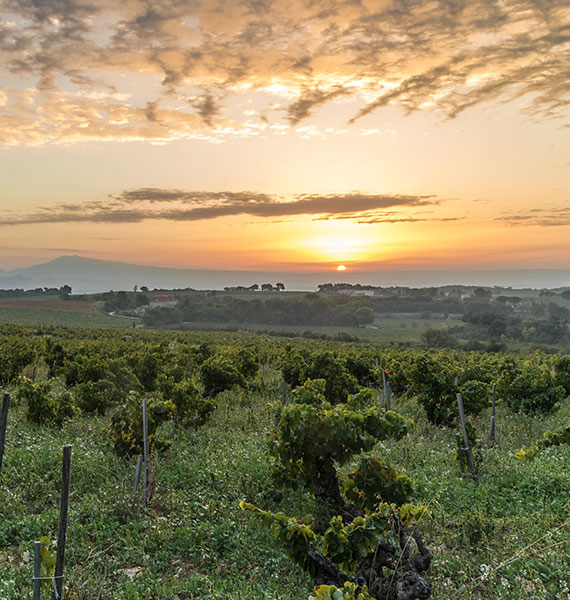

Find out more
Châteauneuf-du-Pape is the ultimate place to find out all there is to know about the vine! Meeting at Maison Brotte. This Wine museum has a collection of winemakers’ tools, old 4000-litre barrels, tastings… It makes for a rich, fascinating visit.
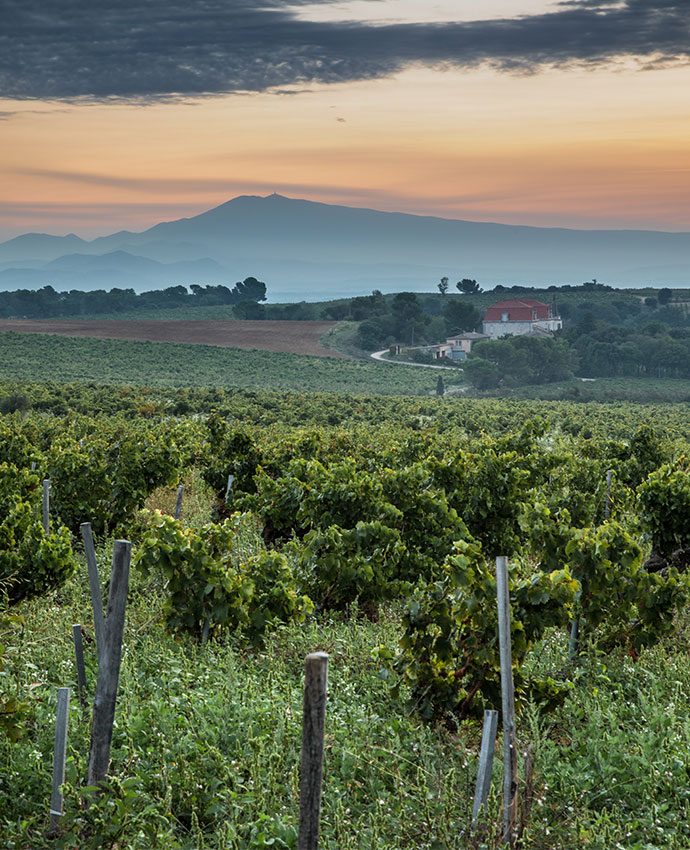
The Rhône Valley
Following the water’s flow
The plots of vines continue as far as the banks of the Rhône, marked out by leafy hedges or wild, dense garrigue. The land has been steeped in the silt and water of this emblematic river. The fertile plain of the Rhône is broken up by canals, rivers, lakes, ponds and “lônes” (arms of the river)… Various structures have been built over time that tame the fast-flowing river, changing its environment, activities and how we navigate it.
We go over the side canal joining the Les Arméniers branch to get to the dyke. We keep walking towards the south by taking the old towpath that goes along this bypass. We cross secret, silent nature that we wouldn’t have imagined was there, with calm water, a tree-lined bank, garrigue, pine and cypress trees. We know that further on, this oxbow lake of the Rhône separates île de l’Oiselay and surrounds Islon Saint-Luc.

Tours and detours
Islon Saint-Luc and île de l’Oiselay are protected areas in the Natura 2000 network. An ecological trail and discovery trails provide a host of opportunities to explore these exceptional natural spaces.
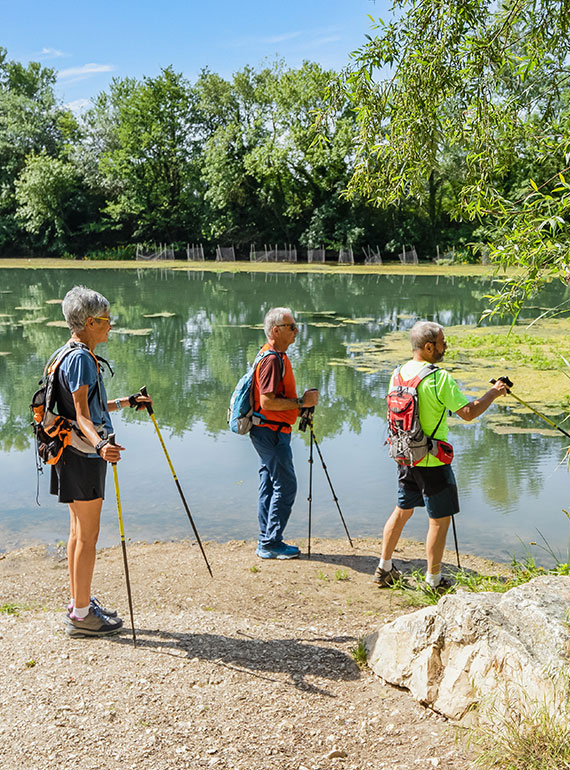
L’Hers Tower
L’Hers Tower looks out over the vast corridor of the Rhône and centuries of history from its rocky promontory. This strategic site facing Roquemaure, on a former island hugging the curve of the river, enabled the lords to control navigation. Boats had to pay a right of way in salt.
This private property is not open to the public but you can walk around it. The imposing ruins, a symbol of power, are a reminder of how the Rhône has always been a prize.
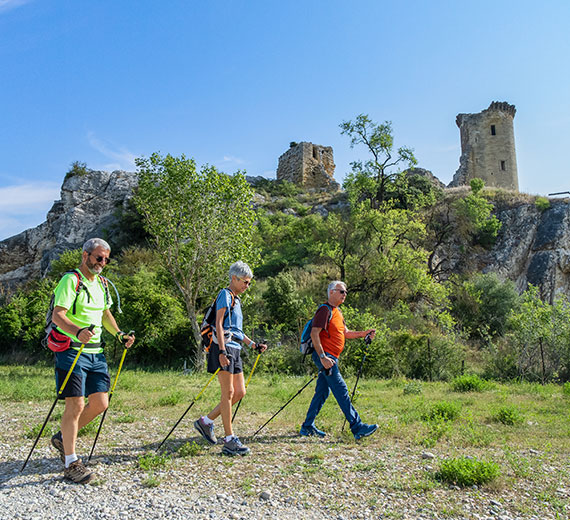

View point
As we’re turning our backs on the river, on the flat of the dyke… a double pyramid appears! Mont Ventoux that stands out from the sky in the distance seems to mirror the Tower’s rocky foundations.
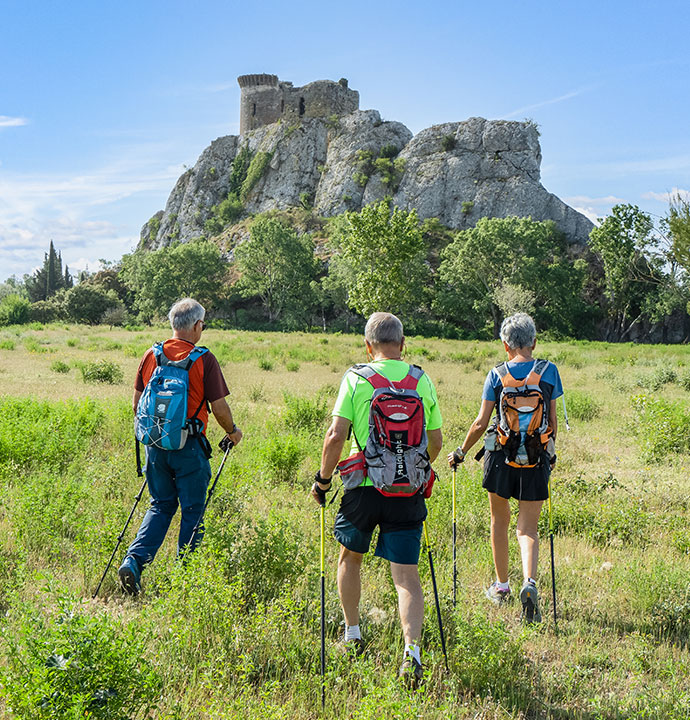
To extend the visit…
As we near the village, we can make out the western façade of the Popes’ Castle overlooking the wine-growing region. We’ll remember an image of laboured land, January light, bare vines and the petals of white rocket that bloom at the foot of them until the middle of winter.
Gentle wandering through renowned winemaking country is sure to arouse curiosity and temptation in the wine enthusiasts among us… Luckily at Châteauneuf-du-Pape, it is fairly easy to find somewhere to spend some time learning more about the subject!
Having been enchanted by the complex wine blending but also the emblematic bottle shape, we took a few precious bottles with us when we left.

Fall in love…
On the way back the chocolate maker Chocolaterie Castelain is sure to entice those who appreciate good chocolate. It opens the doors to a subtle world of flavours… The wine and chocolate workshop is one to try.
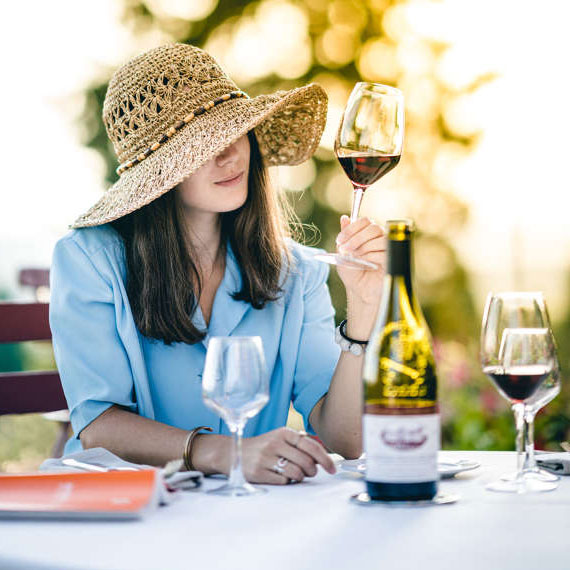
Tasting under the vaults
Taste different Châteauneuf-du-Pape wines with Guy Bremond, master sommelier, who is passionate about the history of the village and its wines. It is a 13th-century vaulted cellar, with incredible architecture.
Practical Information

Itinerary
See the itinerary in detail

Getting there
By bus : from Avignon, take line 1 as far as Orange and once in Orange take line 23.
By car : from Avignon, take the départementale 907. From Orange, take the départementale 68.

Parking
Place de la Bascule
























